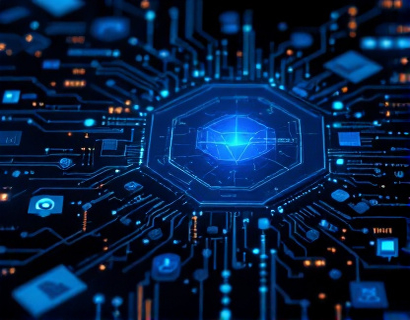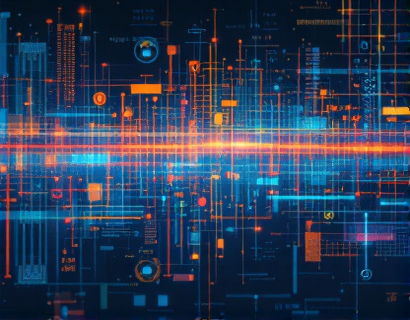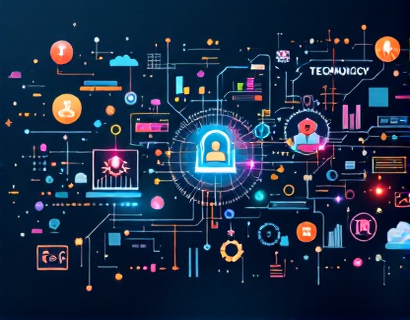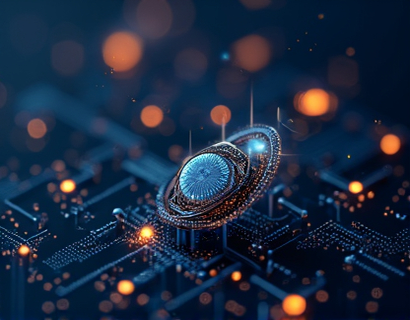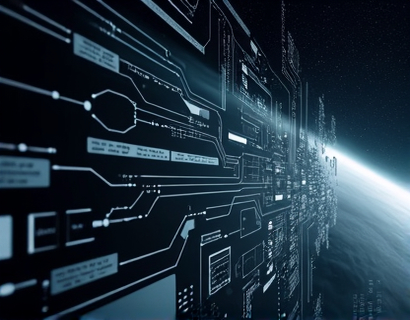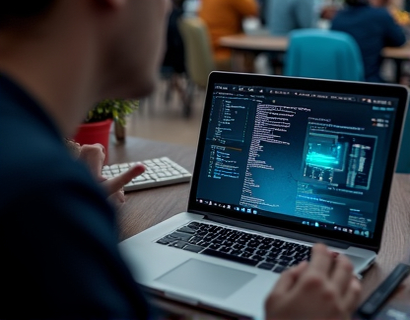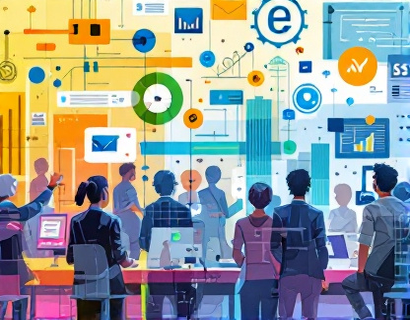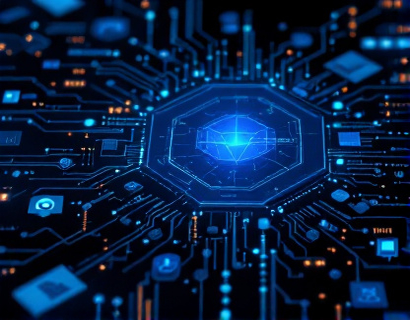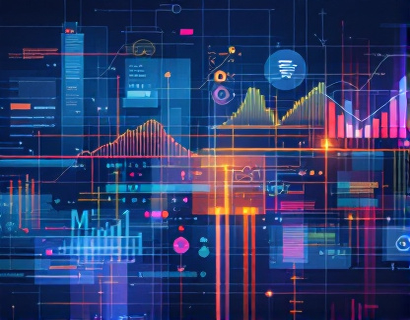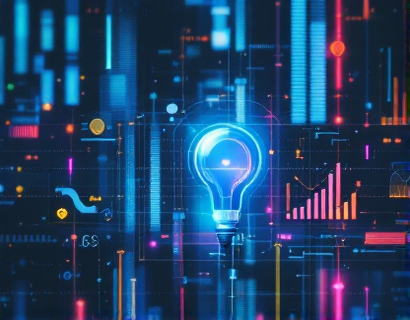Decentralized Productivity: Unlocking Efficiency and Innovation with AI and Crypto Integration
The intersection of artificial intelligence and cryptocurrency has given rise to a new paradigm in digital productivity and collaboration. This emerging field, often referred to as decentralized productivity, leverages the strengths of both technologies to create advanced tools that redefine how we work and interact in the digital space. This article delves into the synergies between AI and crypto, exploring how their integration is paving the way for more efficient, secure, and innovative solutions.
Decentralized productivity tools are built on blockchain technology, which ensures transparency, immutability, and security. These characteristics are crucial for fostering trust among users and enabling seamless collaboration across borders and organizations. By integrating AI, these tools can automate complex tasks, provide intelligent insights, and adapt to user needs in real-time, thereby enhancing productivity and driving innovation.
Understanding Decentralized Productivity
Decentralized productivity refers to the use of decentralized applications (dApps) and platforms that operate on blockchain networks. Unlike traditional centralized systems, where data and control are held by a single entity, decentralized systems distribute these functions across a network of nodes. This distribution not only enhances security by eliminating single points of failure but also promotes transparency and fairness.
The core principle of decentralization aligns well with the ethos of the crypto community, which values openness, accessibility, and user empowerment. When combined with AI, which excels in processing and analyzing vast amounts of data, the potential for transformative productivity tools becomes evident. These tools can automate routine tasks, provide predictive analytics, and offer personalized experiences, all while maintaining the integrity and security of decentralized networks.
AI in Decentralized Systems
AI plays a pivotal role in decentralized productivity by enhancing the capabilities of dApps and smart contracts. Machine learning algorithms can be deployed to analyze data from various sources, identify patterns, and make informed decisions. For instance, AI-driven chatbots can facilitate user interactions, providing support and guidance in real-time without the need for human intervention.
Moreover, AI can optimize the performance of decentralized networks by managing resource allocation, predicting network congestion, and ensuring smooth operations. Smart contracts, the backbone of many decentralized applications, can be augmented with AI to execute more complex logic and adapt to changing conditions dynamically. This fusion of AI and smart contracts enables the creation of self-executing agreements that are not only secure but also intelligent and responsive.
Enhanced Collaboration and Productivity
One of the most significant benefits of decentralized productivity tools is the enhancement of collaboration among distributed teams. Traditional collaboration tools often suffer from issues such as data silos, lack of transparency, and security concerns. Decentralized platforms eliminate these issues by providing a transparent and secure environment where all participants have equal access to information and tools.
AI-powered collaboration tools can further amplify these benefits. For example, AI can analyze communication patterns and suggest optimal collaboration strategies, identify potential bottlenecks, and propose solutions to improve workflow efficiency. Virtual assistants driven by AI can manage schedules, prioritize tasks, and ensure that all team members are aligned and productive.
Additionally, decentralized identity management systems, enhanced by AI, can streamline user authentication and access control. This ensures that only authorized users can access sensitive information and tools, thereby maintaining the integrity of collaborative projects. The use of non-fungible tokens (NFTs) for digital credentials and assets can also simplify the verification process, making collaboration more seamless and secure.
Innovative Applications in Various Industries
The applications of decentralized productivity tools are vast and varied, spanning multiple industries. In the realm of finance, decentralized finance (DeFi) platforms leverage AI to offer sophisticated trading algorithms, risk management tools, and automated investment strategies. These platforms provide users with greater control over their financial assets while ensuring transparency and security through blockchain technology.
In the healthcare sector, decentralized health records managed on blockchain can be enhanced with AI to provide predictive analytics and personalized treatment recommendations. AI-driven analysis of medical data can help identify trends and patterns, leading to more accurate diagnoses and effective treatment plans. Decentralized platforms can also facilitate secure sharing of medical records among healthcare providers, improving patient care and outcomes.
The real estate industry can benefit from decentralized platforms that use AI to analyze market trends, predict property values, and automate transactions. Smart contracts can streamline the buying and selling process, reducing the need for intermediaries and lowering transaction costs. AI-powered virtual property tours and virtual reality experiences can also enhance the buyer's journey, making the real estate process more efficient and engaging.
Challenges and Considerations
Despite the numerous advantages, the integration of AI and crypto in decentralized productivity tools is not without challenges. One of the primary concerns is the technical complexity involved in building and maintaining these systems. Developers need a deep understanding of both blockchain technology and AI to create robust and scalable solutions.
Another challenge is the regulatory landscape. As decentralized technologies and AI continue to evolve, regulatory frameworks are still catching up. Ensuring compliance with existing laws and navigating the evolving legal environment is crucial for the adoption and success of these tools. Additionally, user education and adoption remain key factors. Many potential users are still unfamiliar with blockchain and AI, and overcoming the learning curve is essential for widespread adoption.
Security is another critical aspect. While blockchain technology is inherently secure, the integration of AI introduces new vulnerabilities. Ensuring the integrity of AI models and protecting against adversarial attacks is paramount. Continuous monitoring and updating of security measures are necessary to safeguard decentralized productivity tools.
Future Prospects
The future of decentralized productivity is promising, with ongoing advancements in both AI and blockchain technology. As AI algorithms become more sophisticated, their ability to enhance decentralized tools will continue to grow. The development of more efficient and user-friendly AI models will make these tools accessible to a broader audience, driving wider adoption.
Blockchain technology is also evolving, with improvements in scalability, interoperability, and user experience. The emergence of layer 2 solutions and cross-chain protocols will enable more seamless interactions between different decentralized platforms, fostering a more interconnected and efficient ecosystem.
The convergence of AI and crypto is likely to give rise to new business models and economic systems. Decentralized autonomous organizations (DAOs) powered by AI can redefine governance and decision-making processes, making them more democratic and efficient. The potential for decentralized marketplaces, where AI optimizes matching and pricing, is immense, promising to disrupt traditional industries and create new opportunities.
In conclusion, the integration of AI and crypto in decentralized productivity tools represents a significant leap forward in digital collaboration and efficiency. By leveraging the strengths of both technologies, we can create a more transparent, secure, and innovative digital landscape. As the field continues to evolve, it is essential for tech innovators and early adopters to stay informed and embrace these transformative solutions.







